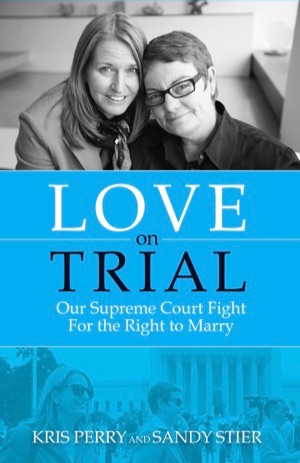Campus News
Prop. 8 plaintiff Kris Perry receives Distinguished Social Sciences Alumni Award
“You only win your civil rights by fighting for them,” says alumna Kris Perry, who will be honored at a reception on Friday, April 28.

Kris Perry never intended to become a civil rights icon.
As an undergraduate at UC Santa Cruz, she studied psychology and sociology, exploring the themes of social justice that would shape her career as an advocate for children.
After more than two decades of behind-the-scenes work, Perry stepped into the national spotlight as the lead plaintiff in the historic legal challenge that overturned California’s ban on gay marriage. Perry says she was simply doing what was right and advocating for her family when she joined the case that took marriage equality all the way to the U.S. Supreme Court.
“What I learned, working very closely with constitutional lawyers, is that you only win your civil rights by fighting for them,” says Perry, who never hesitated to join the lawsuit in 2009.
“I was excited to be pushing for a solution and to be part of a team fighting for our rights,” she recalls. She felt some fear and trepidation, too: The LGBT community wasn’t unified behind the court strategy, and so much was unknown, but the support was there.
Perry has been named the 2017 recipient of the Social Sciences Distinguished Alumni Award. She will be honored at a reception at 4 p.m., on Friday, April 28, in the La Feliz Room of the Seymour Marine Discovery Center. Advance registration is available online.
Perry’s life story could have been a case study in one of the classes she took as an undergraduate. More than 30 years later, she still raves about her professors and their ability to link the personal to the political. Sociologist Candace West was “amazing.” Marcia Millman was “unbelievable.” Merrill College core course instructor Julianne Burton “taught me to write.”
“They had a way of drawing out students, getting us to open up, and then tying it all back to big themes,” says Perry, who had planned to major in psychology but promptly added sociology, as well.
“I woke up politically at Santa Cruz,” she says. Her first quarter on campus was transformational. She discovered feminism—and her sexual orientation. She came out, and she began to explore gender equality and civil rights.
Perry began her career as a child-abuse investigator and spent nearly 25 years as a social worker and director of social service programs. In 2005, she was named executive director of First 5 California. Seven years later, she moved to Washington, D.C., as executive director of the First Five Years Fund, a national bipartisan advocacy group that supports the education and care needs of low-income children from birth through age five.
Since the election of Donald Trump, Perry is “watching carefully” to see what the new administration may do—regarding marriage equality, early childhood education, and civil rights. “I’ve dedicated my career to improving the public good,” says Perry. “It’s all very much at risk at this point.”
“I’m inspired by the intersections of politics that are emerging from the Women’s March—and the populist movements on the Left and on the Right,” she says. She sees the country moving away from only political parties and toward a more values-based approach, and she is heartened to see people inspired to work in government and “to change the system from within.”
“It’s hard to see government maligned, when in fact government service is noble and profound,” says Perry.
This spring, she and her wife Sandy Stier are looking forward to the publication of their memoir, Love on Trial: Our Supreme Court Fight for the Right to Marry, which comes out May 9. And Perry was delighted that they were featured in the recent ABC mini-series about gay history, “When We Rise.”
They are also looking forward to celebrating the graduation in June of their son, Elliott, who is a senior majoring in environmental studies at UC Santa Cruz.
“I was playing it really cool when he was thinking about which college to attend,” recalls Perry. “But when he got in to UCSC and wanted to visit, I said, ‘I’m taking him!’ He walked away from the tour and said ‘I think this is the perfect place for me.’ I didn’t have to do a hard sell at all.”